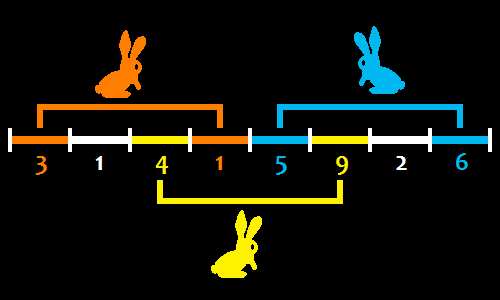Problem Statement
There is a special computer named B-Computer, which all bunnies are eager to use. All bunnies want to solve a difficult problem using B-Computer. Because they type very fast, each of them wants to solve the problem according to the following process that consists of 3 stages (no delay is allowed between subsequent stages):
- Use B-Computer for exactly one time unit.
- Think and calculate on paper for exactly k time units, not using B-Computer.
- Use B-Computer for exactly one time unit again to complete.
A day is divided into a number of equal time units, and each time unit has an associated positive integer value called preference. You are given a int[] preference, which contains the preference values for a day. The number of elements in preference is the number of time units in the day, and the i-th element of preference is the preference of the i-th time unit.
Bunnies want to design a B-Computer schedule for a single day so that the sum of preferences of time units in which one of them uses B-Computer is maximized. The schedule must be such that each bunny uses B-computer exactly as described above and both time units at which the same bunny uses B-computer are in the same day. Return the maximum possible sum of preferences. You can assume that there are infinitely many bunnies.
Definition
| Class: | BunnyComputer |
| Method: | getMaximum |
| Parameters: | int[], int |
| Returns: | int |
| Method signature: | int getMaximum(int[] preference, int k) |
| (be sure your method is public) | |
Constraints
Examples
| ||
Returns: 28 | ||
| ||
| ||
Returns: 31 | ||
| ||
Returns: 14 | ||
| ||
Returns: 0 | ||
| ||
